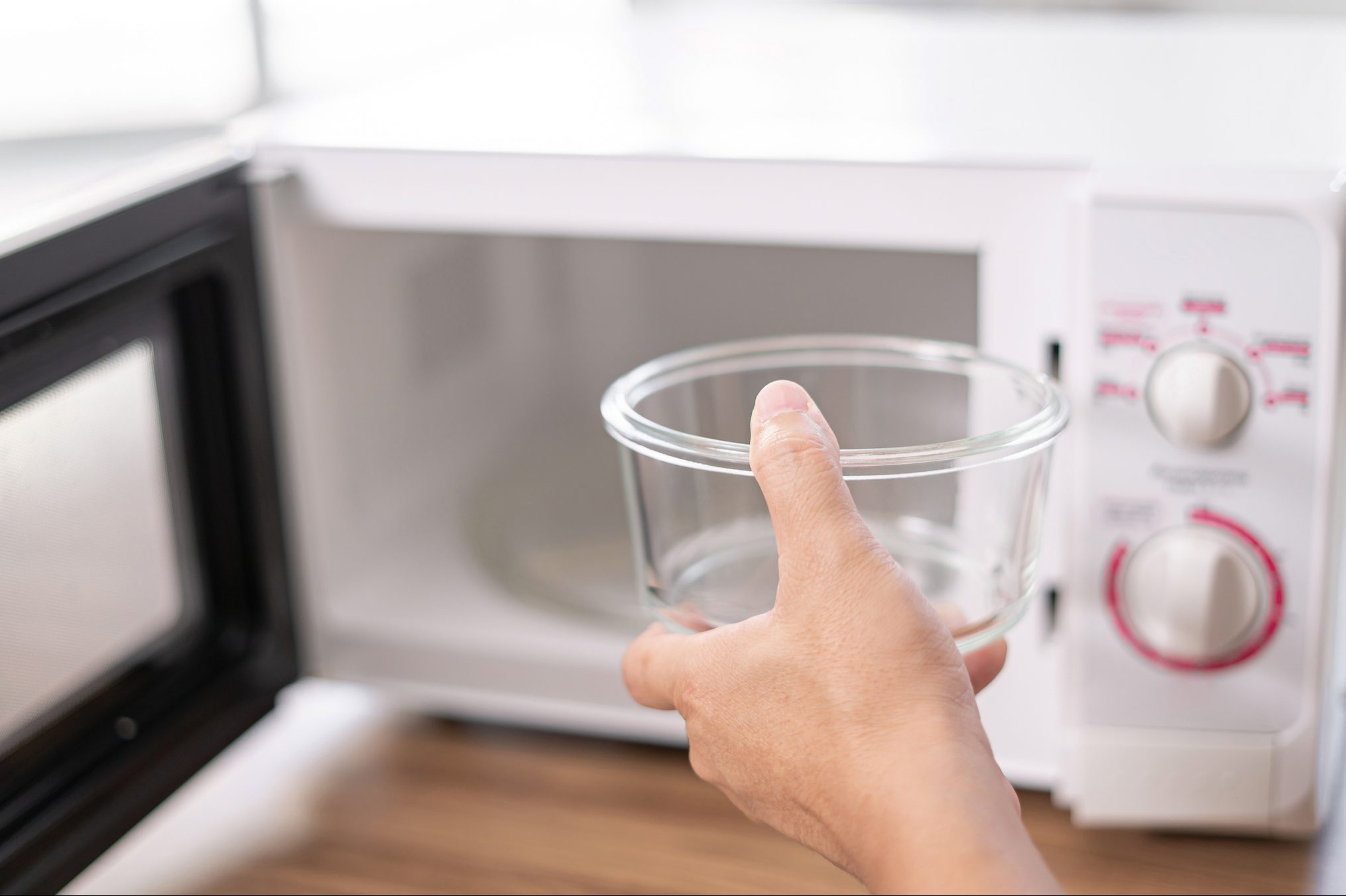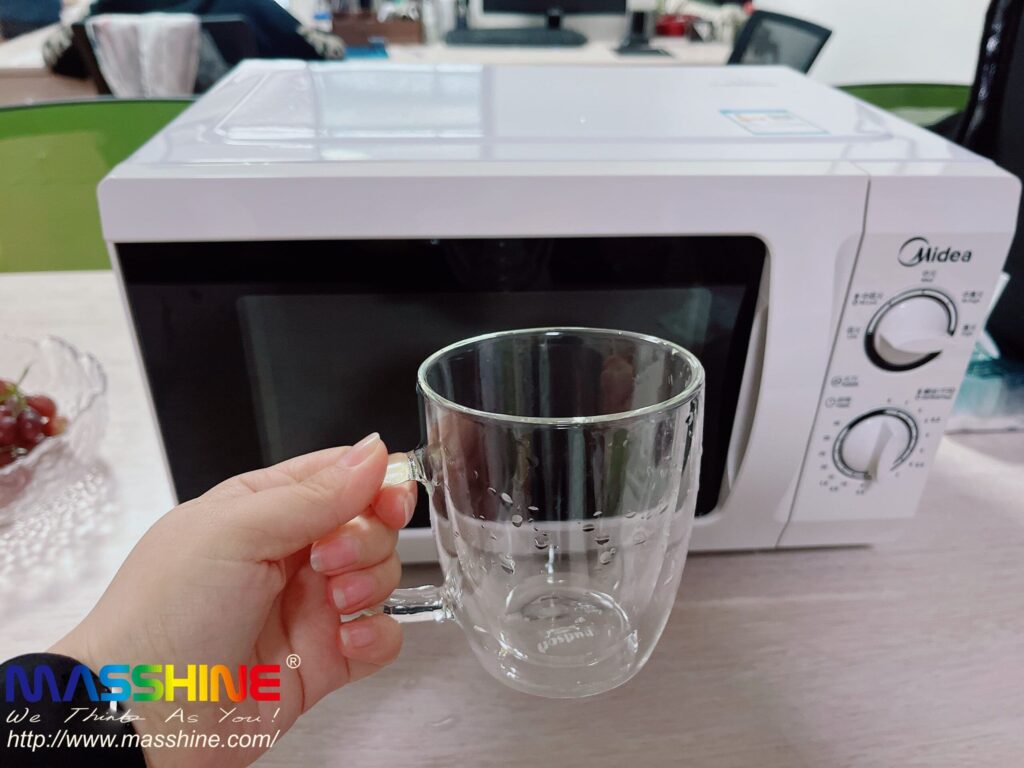Yes, you can microwave glass. But not all glass is microwave-safe.
Table of Contents
ToggleKnowing the difference is crucial. Microwaving food in glass containers can be very convenient. It’s important to understand which types of glass are safe to use. Not all glassware is created equal; some can withstand high temperatures, while others may crack or shatter.
We’ll explore the types of glass that are safe for the microwave. We’ll also cover tips to ensure you use them safely. This knowledge will help you avoid accidents and enjoy the ease of microwaving with confidence. So, let’s dive in and find out how to microwave glass without worry.

Credit: www.reddit.com
Introduction To Microwaving Glass
Microwaving has become a common method for heating food. But many people wonder, can you microwave glass? Knowing the answer is important for safety and convenience.
Common Questions
Many people have questions about microwaving glass. Here are a few:
- Is it safe to microwave all types of glass?
- What signs indicate that glass can go in the microwave?
- Can microwaving glass cause it to break?
Importance Of Knowing
Understanding which glass items are microwave-safe is crucial. It prevents potential hazards like broken glass or spills. Using the right type of glass ensures your food heats evenly and safely.
Microwave-safe glass usually has a label. This label is often found at the bottom of the item. If there is no label, it is best to avoid microwaving it.
Here is a quick reference table:
| Glass Type | Microwave Safe? |
|---|---|
| Borosilicate Glass | Yes |
| Tempered Glass | Yes |
| Regular Glass | Not Always |
By following these tips, you can safely microwave your meals. Always check the labels and when in doubt, avoid microwaving the glass.

Credit: www.tasteofhome.com
Types Of Microwave-safe Glass
When using a microwave, it’s essential to use the right type of glass. Not all glass is created equal. Some types are safe for microwaving, while others are not. Knowing the difference can prevent accidents and damage. Here are the types of microwave-safe glass you should know about.
Borosilicate Glass
Borosilicate glass is well-known for its durability. It can handle sudden temperature changes. This makes it perfect for microwaving. Many laboratory tools are made from this type of glass. It is less likely to crack or break. This type of glass is also resistant to chemicals. You can find borosilicate glass in cookware and kitchenware. It is a safe choice for your microwave.
Tempered Glass
Tempered glass is another good option. It is treated with heat or chemicals to improve strength. This process makes it four times stronger than regular glass. If it breaks, it shatters into small, blunt pieces. This reduces the risk of injury. Tempered glass can handle high temperatures without breaking. This makes it safe for microwaving. Many glass food containers are made from tempered glass. It is also used in microwave-safe plates and bowls.
Identifying Microwave-safe Glassware
Microwaving glass can be tricky. Not all glassware is safe for this use. To avoid accidents and damage, it’s essential to know if your glassware is microwave-safe. This section will guide you on how to identify microwave-safe glassware.
Manufacturer Labels
Manufacturer labels provide the most reliable information. Look for labels or symbols that indicate the glassware is microwave-safe. These symbols are usually found on the bottom of the glassware. They may include a microwave icon or the words “microwave-safe”. If you can’t find a label, check the product packaging or the manufacturer’s website.
Home Testing Methods
If your glassware lacks a manufacturer label, you can use home testing methods. These methods are simple and effective.
| Method | Instructions |
|---|---|
| Water Test |
1. Fill a glass cup with water. 2. Place the glass cup and the glassware in the microwave. 3. Microwave for one minute. 4. Check if the glassware is cool and the water is hot. If the glassware is cool, it’s safe to use. |
Another method involves checking for cracks or chips. Damaged glassware should not be microwaved. It can break or shatter.
Follow these tips to ensure safety and prevent accidents. Always refer to manufacturer labels first. Use home testing as a secondary measure.
Risks Of Microwaving Non-safe Glass
Microwaving glass can be risky if the glass is not microwave-safe. Using non-safe glass in the microwave may lead to several hazards. These dangers could harm you or damage your microwave.
Cracking And Shattering
Non-safe glass may crack or shatter in the microwave. The heat from the microwave can cause the glass to expand. If the glass expands unevenly, it can break. Broken glass can cause injuries. Cleaning up shattered glass is also a hassle. It’s best to avoid using non-safe glass in the microwave.
Chemical Leaching
Some glassware contains harmful chemicals. When microwaved, these chemicals can leach into your food. This can pose health risks. Eating food contaminated with chemicals is not safe. Always use microwave-safe glass to avoid this risk. Protect your health by choosing the right glassware.
Tips For Safe Microwaving
Microwaving glass can be safe if done correctly. Following a few simple tips can help prevent accidents and ensure your food heats evenly. Here are some key points to keep in mind for safe microwaving.
Gradual Temperature Changes
One important tip is to avoid sudden temperature changes. Glass can crack if it goes from cold to hot too quickly. Here are some steps to follow:
- Let your glass dish warm up to room temperature before microwaving.
- If you store food in the fridge, allow it to sit for a few minutes.
- Heat your food in short intervals to avoid rapid temperature shifts.
These steps help your glass dish adjust to the heat without breaking.
Avoiding Metal Trims
Another key point is to avoid using glass with metal trims. Metal can cause sparks in the microwave, leading to fires. Follow these guidelines:
- Check if your glassware has any metal parts or decorations.
- Use only glass dishes that are labeled microwave-safe.
- Inspect your dish for any hidden metal before microwaving.
Using the right type of glassware ensures a safe and efficient cooking process.
Alternatives To Glass In Microwaves
Alternatives to glass in microwaves offer convenience and safety. While glass is popular for microwave use, other materials work well too. These alternatives provide durability and can handle microwave heat without issues. Let’s explore some excellent options for microwave use.
Microwave-safe Plastics
Microwave-safe plastics are a versatile option. They are lightweight and durable. These plastics can handle microwave heat without melting or warping. Always check the label to ensure it’s microwave-safe. Many plastic containers have this label, making them a convenient choice.
Ceramics And Stoneware
Ceramics and stoneware are excellent for microwaves. They heat food evenly and retain heat well. These materials are sturdy and resistant to cracking. Always ensure the ceramic or stoneware is labeled microwave-safe. This ensures it won’t shatter or get damaged. These materials offer a stylish and practical alternative to glass.
Cleaning And Maintaining Microwave-safe Glass
Microwaving glass is safe if it’s labeled microwave-safe. Regularly clean and inspect glassware to prevent damage.
Microwave-safe glass dishes are a convenient choice for cooking and reheating food. To keep them in good condition, proper cleaning and maintenance are essential. This ensures the longevity of your glassware and safety during use. Let’s explore some effective techniques and tips to help you clean and maintain your microwave-safe glass.Proper Cleaning Techniques
Wash your microwave-safe glass with warm, soapy water. Use a soft sponge to avoid scratches. Rinse thoroughly to remove soap residue. Dry with a clean towel to prevent water spots. For stubborn stains, let the glass soak in soapy water first. Then, use a soft brush to clean.Avoiding Abrasives
Never use abrasive cleaners on your glassware. They can scratch the surface and weaken the glass. Avoid steel wool and rough scrub pads. Opt for gentle, non-abrasive cleaning tools. This keeps your glassware smooth and safe for microwave use. “`
Credit: www.reddit.com
Frequently Asked Questions
Is It Safe To Microwave Glass?
Yes, most glassware is microwave-safe. Check for a microwave-safe label. Avoid sudden temperature changes to prevent breaking.
Can All Types Of Glass Be Microwaved?
Not all glass is microwave-safe. Heat-resistant glass is best. Regular glass may break due to thermal shock.
What Happens If You Microwave Glass?
Microwaving glass can heat it up quickly. Non-microwave-safe glass may crack or shatter from thermal stress.
How To Know If Glass Is Microwave-safe?
Look for a “microwave-safe” label on the glass. If absent, test with caution using short intervals.
Conclusion
Microwaving glass can be safe with the right precautions. Always check for microwave-safe labels. Avoid using cracked or chipped glassware. Heating food in glass can be convenient and effective. Remember, safety comes first. Use caution with older glass containers. Stay informed and microwave with confidence.
Happy microwaving!
{ “@context”: “https://schema.org”, “@type”: “FAQPage”, “mainEntity”: [ { “@type”: “Question”, “name”: “Is it safe to microwave glass?”, “acceptedAnswer”: { “@type”: “Answer”, “text”: “Yes, most glassware is microwave-safe. Check for a microwave-safe label. Avoid sudden temperature changes to prevent breaking.” } } , { “@type”: “Question”, “name”: “Can all types of glass be microwaved?”, “acceptedAnswer”: { “@type”: “Answer”, “text”: “Not all glass is microwave-safe. Heat-resistant glass is best. Regular glass may break due to thermal shock.” } } , { “@type”: “Question”, “name”: “What happens if you microwave glass?”, “acceptedAnswer”: { “@type”: “Answer”, “text”: “Microwaving glass can heat it up quickly. Non-microwave-safe glass may crack or shatter from thermal stress.” } } , { “@type”: “Question”, “name”: “How to know if glass is microwave-safe?”, “acceptedAnswer”: { “@type”: “Answer”, “text”: “Look for a “microwave-safe” label on the glass. If absent, test with caution using short intervals.” } } ] }

